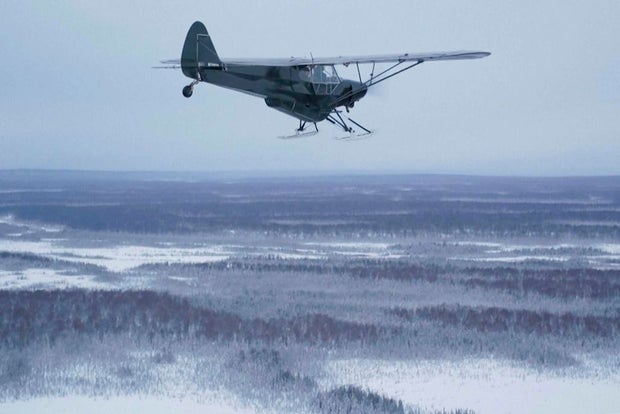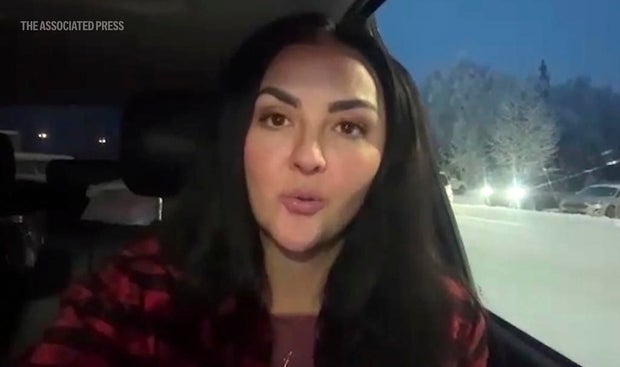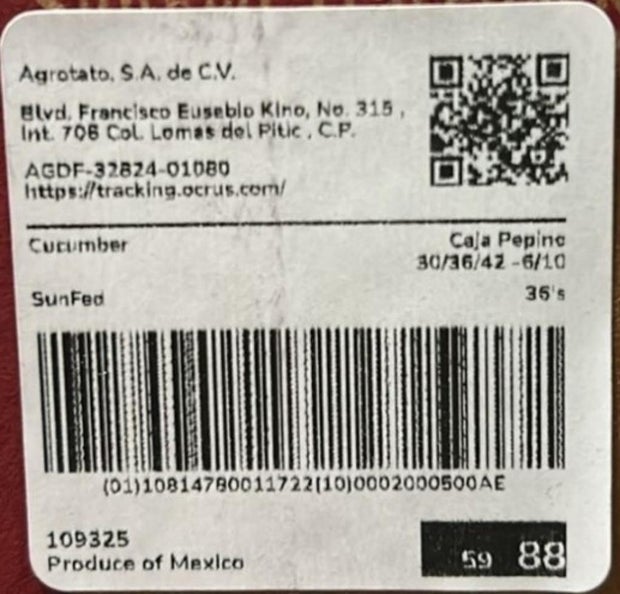CBS News
Bird flu risk to humans is low right now, but “things can change,” doctor says
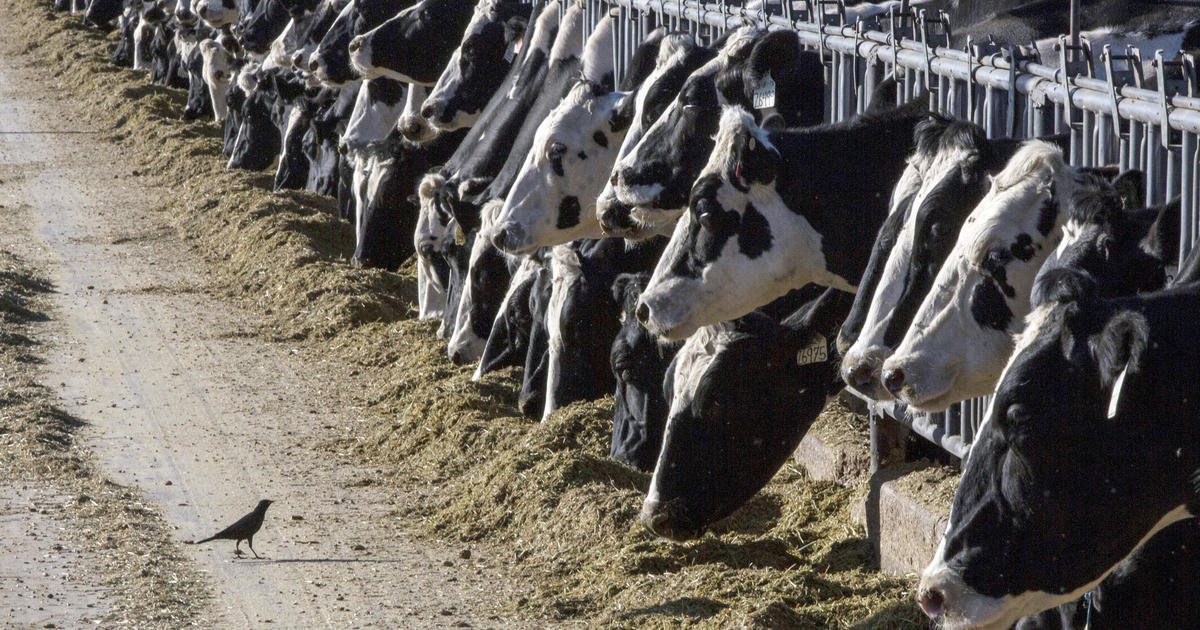
After bird flu jumped to dairy cows in March, the H5N1 virus has spread among cattle across nine different states, stoking fears about the potential impact of the virus on humans.
Public health officials are closely monitoring for any signs H5N1 is mutating into a form that could spread from human to human, CBS News chief medical correspondent Dr. Jon LaPook told “CBS Mornings” on Friday.
“There’s no evidence that has happened yet, but that’s the big concern,” he said.
That means human risk right now is “very low,” LaPook said, unless:
But, LaPook said, “things can change.”
“We’ve learned unfortunately, from the pandemic, (viruses) can mutate. They can change,” he said. “That is why there’s such concern among public health officials and others … The worry would be if it changes in mutations genetic composition so that it can spread easily from human to human.”
This is why the CDC and others trying to stay on top of things, LaPook said, so changes don’t happen without us realizing — making tracking the virus important.
Dr. Larry Brilliant, an epidemiologist who has worked in public health since helping to eradicate smallpox in the 1970s, told LaPook he doesn’t think there is enough testing going on.
“They should activate every surveillance system that would help them find out which animals are sick. They should use wastewater, they should be checking though the water in bilges of ships and bilges of airplanes,” he said. “Here’s a good reason to do it: We have antivirals. We have treatments. We can make a vaccine very quickly.”
LaPook says the USDA and CDC are working to incentivize more testing among farmers.
“It turns out that poultry farmers are reimbursed for financial loss related to bird flu. There’s an insurance policy. That’s not true with cattle ranchers,” LaPook said. “In addition to that, there are a variety of reasons why people working there, various workers may not want to get tested.”
CBS News
Pilot in Alaska air drops turkeys for residents in remote homes who can’t run out to a grocery store
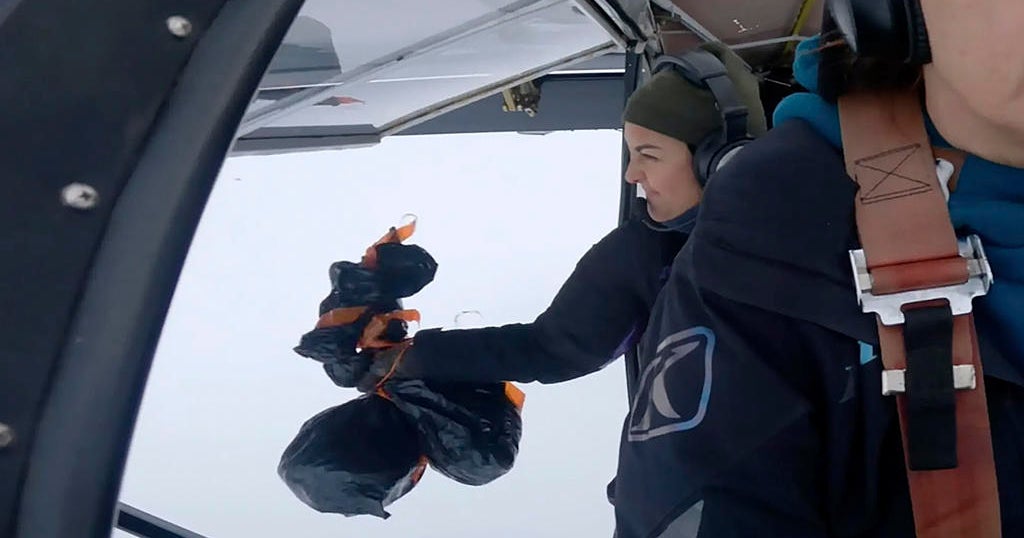
In the remotest reaches of Alaska, there’s no relying on DoorDash to have Thanksgiving dinner — or any dinner — delivered. But some residents living well off the grid nevertheless have turkeys this holiday, thanks to the Alaska Turkey Bomb.
For the third straight year, a resident named Esther Keim has been flying low and slow in a small plane over rural parts of south-central Alaska, dropping frozen turkeys to those who can’t simply run out to the grocery store.
Alaska is mostly wilderness, with only about 20% of it accessible by road. In winter, many who live in remote areas rely on small planes or snowmobiles to travel any distance, and frozen rivers can act as makeshift roads.
Alaska Gear Company via AP
When Keim was growing up on an Alaska homestead, a family friend would airdrop turkeys to her family and others nearby for the holidays. Other times, the pilot would deliver newspapers, sometimes with a pack of gum inside for Keim.
Her family moved to more urban Alaska nearly 25 years ago but still has the homestead. Using a small plane she had rebuilt with her father, Keim launched her turkey delivery mission a few years back after learning of a family living off the land nearby who had little for Thanksgiving dinner.
“They were telling me that a squirrel for dinner did not split very far between three people,” Keim recalled. “At that moment, I thought … ‘I’m going to airdrop them a turkey.'”
She decided not to stop there. Her effort has grown by word of mouth and by social media posts. This year, she’s delivering 32 frozen turkeys to people living year-round in cabins where there are no roads.
Mountain Mind Media/Alaska Gear Company via AP
All but two had been delivered by Tuesday, with delivery plans for the last two birds thwarted by Alaska’s unpredictable weather.
Among the beneficiaries are Dave and Christina Luce, who live on the Yentna River about 45 miles (72 kilometers) northwest of Anchorage. They have stunning mountain views in every direction, including North America’s tallest mountain, Denali, directly to the north. But in the winter it’s a 90-minute snowmobile ride to the nearest town, which they do about once a month.
“I’m 80 years old now, so we make fewer and fewer trips,” Dave Luce said. “The adventure has sort of gone out of it.”
They’ve known Keim since she was little. The 12-pound (5.44-kilogram) turkey she delivered will provide more than enough for them and a few neighbors.
“It makes a great Thanksgiving,” Dave Luce said. “She’s been a real sweetheart, and she’s been a real good friend.”
Keim makes 30 to 40 turkey deliveries yearly, flying as far as 100 miles (161 kilometers) from her base north of Anchorage toward Denali’s foothills.
Sometimes she enlists the help of a “turkey dropper” to ride along and toss the birds out. Other times, she’s the one dropping turkeys while her friend Heidi Hastings pilots her own plane.
Esther Keim via AP
Keim buys about 20 turkeys at a time, with the help of donations, usually by people reaching out to her through Facebook. She wraps them in plastic garbage bags and lets them sit in the bed of her pickup until she can arrange a flight.
“Luckily it’s cold in Alaska, so I don’t have to worry about freezers,” she said.
She contacts families on social media to let them know of impending deliveries, and then they buzz the house so the homeowners will come outside.
“We won’t drop the turkey until we see them come out of the house or the cabin, because if they don’t see it fall, they’re not going to know where to look,” she said.
It can be especially difficult to find the turkey if there’s deep snow. A turkey was once missing for five days before it was found, but the only casualty so far has been a lost ham, Keim said.
Keim prefers to drop the turkey on a frozen lake if possible so it’s easy to locate.
“As far as precision and hitting our target, I am definitely not the best aim,” she joked. “I’ve gotten better, but I have never hit a house, a building, person or dog.”
Her reward is the great responses she gets from families, some who record her dropping the turkeys and send her videos and texts of appreciation.
“They just think it’s so awesome that we throw these things out of the plane,” Keim said.
Ultimately, she hopes to set up a nonprofit organization to solicit more donations and reach people across a bigger swath of the state. And it doesn’t have to stop at turkeys.
“There’s so many kids out in the villages,” she said. “It would be cool to maybe add a stuffed animal or something they can hold.”
CBS News
Jon Batiste to sing national anthem at Super Bowl, Ledisi, Trombone Shorty and Lauren Daigle to also perform

The Super Bowl pregame will have some Louisiana flavor: Multi-talented performer Jon Batiste will hit the stage to sing the national anthem, while Trombone Shorty and Lauren Daigle are slated to perform “America the Beautiful.”
The performances will take place Feb. 9 at Caesars Superdome in New Orleans before the NFL’s championship matchup and halftime show featuring rap megastar Kendrick Lamar, the league announced Thursday.
“We’re honored to work with this year’s pregame lineup to celebrate the rich musical legacy of New Orleans and the entire state,” said Seth Dudowsky, the head of music at the NFL.
Ledisi will perform ” Lift Every Voice and Sing ” as part of the pregame performances that will air on Fox. The pregame performers are all Louisiana natives.
The national anthem and “America the Beautiful” will be performed by actor Stephanie Nogueras in American sign language.
Otis Jones IV will sign “Lift Every Voice and Sing,” and the halftime show will be signed by Matt Maxey.
Jay-Z’s Roc Nation company and Emmy-winning producer Jesse Collins will serve as co-executive producers of the halftime show.
Batiste is a Grammy and Oscar winner who is the former bandleader for the “The Late Show with Stephen Colbert.” His documentary “American Symphony” is nominated for best music film, and his “It Never Went Away” from the documentary is up for best song written for visual media at the upcoming Grammys. He composed the score for Jason Reitman’s film “Saturday Night” and this month released ” Beethoven Blues (Batiste Piano Series, Vol. 1),” which reimagined the iconic German pianist’s work.
Trombone Shorty, a Grammy winner known for blending funk, soul, R&B and rock, has toured with major acts such as Lenny Kravitz, Red Hot Chili Peppers and the Foo Fighters. Daigle made her way as a contemporary Christian singer, winning two Grammys for her 2018 song “You Say” from her third studio album, “Look Up Child.”
Ledisi won a Grammy for her 2020 single “Anything for You.” She also appeared in the films “Leatherheads,” “Spinning Gold” and the Oscar-nominated “Selma.”
CBS News
Cucumbers recalled across U.S. and Canada over possible salmonella contamination
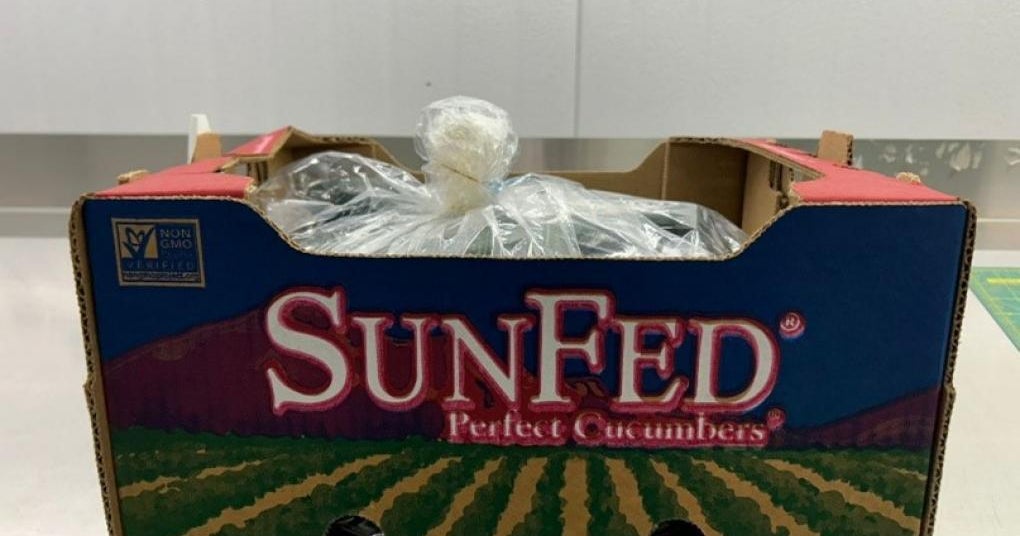
An Arizona produce company is recalling whole cucumbers distributed in 26 states and Canada because they could contain salmonella.
In a filing posted by the Food and Drug Administration on Thursday, SunFed said the recalled cucumbers were sold between Oct. 12 and Nov. 26 and are being pulled from store shelves over possible contamination by the bacteria. Salmonella can cause fatal infections in young children, elderly people or other individuals with weakened immune systems.
The recall applies to all sizes of SunFed whole, fresh cucumbers. The produce came packaged in bulk cardboard containers with a “SunFed” label, or could also have been displayed in a generic white box or black plastic grate. A sticker on such containers would indicate the cucumbers’ grower’s name, the company said.
The produce was shipped to customers in the following states: Alaska, Arizona, Arkansas, California, Colorado, Connecticut, Florida, Idaho, Illinois, Indiana, Kansas, Maryland, Massachusetts, Minnesota, Missouri, New Jersey, New York, North Carolina, Oklahoma, Pennsylvania, Tennessee, Texas, Utah, Virginia, Washington and Wisconsin. Some of the recalled cucumbers also could have ended up at retail outlets beyond those states.
The cucumbers were also sold in the Canadian provinces of Alberta, British Columbia, Calgary, Ontario and Saskatchewan.
SunFed
SunFed
Consumer are urged to check their own produce against images of the potentially affected products and to refrain from consuming or distributing suspect cucumbers. Recalled products should be destroyed, SunFed said.
“As soon as we learned of this issue, we immediately acted to protect consumers. We are working closely with authorities and the implicated ranch to determine the possible cause,” SunFed President Craig Slate said in a statement.
Consumers who may have bought the recalled products or who have questions can contact SunFed’s recall hotline at (888) 542-5849, Monday through Friday from 8 a.m. to 5 p.m. Mountain Time.
Earlier this year, an outbreak of salmonella linked to recalled cucumbers from two Florida growers sickened at least 449 people in 31 states and the District of Columbia.
Salmonella bacteria cause about 1.3 million infections, 26,500 hospitalizations and 420 deaths in the U.S. every year, with food being the source for most of the illnesses, according to the Centers for Disease Control and Prevention.









